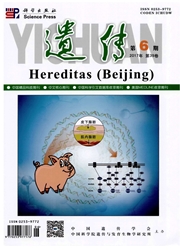

 中文摘要:
中文摘要:
文章利用绿色荧光蛋白基因作为报告基因,研究2个螺旋藻耐盐相关基因启动子区域的功能。通过启动子预测软件预测螺旋藻耐盐相关基因5′端非翻译区的启动子结构,用Primer3.0程序在线设计引物,以pMD18-T载体和pUC18载体克隆螺旋藻启动子序列、gfp和卡那霉素抗性基因,将螺旋藻启动子-GFP基因-卡那霉素抗性基因(pro-gfp-kanr)三联DNA片段克隆至pKW1188载体,并将该重组质粒pKW1188::pro::gfp::kanr转化至受体菌集胞藻6803,激光共聚焦显微镜观察不同盐浓度培养条件下、不同时间段集胞藻表达GFP的情况。结果显示,通过不同盐浓度和不同时间的诱导,2个螺旋藻启动子在0.4~0.6 mol/L NaCl条件下,培养6~8 h表达的绿色荧光蛋白最多。文章成功构建了以绿色荧光蛋白为报告基因、卡那霉素抗性基因为选择标记、集胞藻6803作为外源基因表达受体,进行螺旋藻耐盐相关基因功能研究的平台;另外,从螺旋藻启动子能被盐诱导大量表达GFP的结果看,与启动子相关的螺旋藻基因很可能与螺旋藻的耐盐性相关。
 英文摘要:
英文摘要:
In this work,the functions of promoter fragments of two potential salt-tolerance related genes of Spirulina(Spirulina platensis Geitl.) were studied using green fluorescent protein gene(gfp) as a reporter.The promoter structures of two salt-tolerance related genes of Spirulina were predicted using online promoter prediction software.pMD18-T and pUC18 vectors were used to clone the promoter sequences as well as the gfp gene and kanamycine resistance(kan) gene.The fragments containing pro-gfp-kanr were further cloned into pKW1188 vector and the resulting recombinant plasmids were then transformed into a host strain Synechocystis sp.(Synechocystis pevalekii Ercegovic) PCC6803.The resulting bacterial strains were grown under various concentrations of salinity for defining time intervals.The bacterial fluorescence was ob-served using laser confocal microscope.Our results showed that the transgenic bacteria grown at different concentrations of salinity for various periods produced varying fluorescence intensities.The bacteria treated with NaCl at the concentrations of 0.4mol/L to 0.6mol/L for 6 to 8 h showed the strongest fluorescent intensity.From the result of high salt induced expres-sion of gfp,we predicted that the genes under control of these two promoters are likely to play important roles in the salt tolerance of Spirulina.Accordingly,we believed that a research platform for the studying functions of the promoters of the salt-tolerance related genes in Spirulina has been developed with the gfp as a reporter,the kanr gene as the selection marker,and Synechocystis.sp.PCC6803 as the expression host.
 同期刊论文项目
同期刊论文项目
 同项目期刊论文
同项目期刊论文
 Analysis of phenolic pollutants in human samples by high performance capillary electrophoresis based
Analysis of phenolic pollutants in human samples by high performance capillary electrophoresis based Identification of differentially expressed proteins of Arthrospira (Spirulina) plantensis-YZ under s
Identification of differentially expressed proteins of Arthrospira (Spirulina) plantensis-YZ under s Proteomic analysis and qRT-PCR verification of temperature response to Arthrospira (Spirulina) plate
Proteomic analysis and qRT-PCR verification of temperature response to Arthrospira (Spirulina) plate Comparison of salt-tolerance and genetic evolutionary analysis of five isolates of Spirulina platens
Comparison of salt-tolerance and genetic evolutionary analysis of five isolates of Spirulina platens 期刊信息
期刊信息
